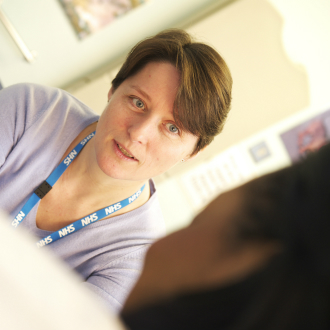Annual diabetes checks ‘halve’ mortality rates, analysis finds

Regular annual diabetes checks halve mortality rate for diabetic patients, according to new data from the National Diabetes Audit 2015/16.
The analysis found that people with diabetes who have had NICE-recommended, annual diabetes checks regularly in the preceding seven years have half the mortality rate of those who have not.
The audit, published by NHS Digital, looked at some 364,000 patients aged 35-74 years in regards to complications and mortality associated with Type 1 and Type 2 diabetes.
People with diabetes aged 20 and over were studied to see how completing a care process of 21 checks of HbA1c, blood pressure and serum cholesterol was associated with their outcomes.
Of these, 75% of Type 2 diabetes patients completed all of the checks, compared to just 59% of Type 1 patients. The rest of the groups completed fewer than 12 checks.
The patients and their care process completion were tracked over a period of seven years between the 2006/07 and 2012/13 audit periods. A follow up period was used to identify if the patient died during 2013/14 or 2014/15.
The report said: ‘The analysis cannot determine causality. For example the findings could be due to such factors as well organised accessible services, more frequent care planning consultations or an association between poor attendance and hazardous behaviours.’
The audit further found that diabetes increases risk of death at all ages for both men and women, compared to the general population. However, younger people are at greater relative risk of premature death than older people.
According to the 2013/14 audit, diabetes patients were 32% more likely to die prematurely than their peers in the general population.
The additional risk of death was 128% higher than the wider population for people with Type 1 diabetes, and 28% higher for those with Type 2 diabetes.
The report urges providers of diabetes care to:
Visit Pulse Reference for details on 140 symptoms, including easily searchable symptoms and categories, offering you a free platform to check symptoms and receive potential diagnoses during consultations.









